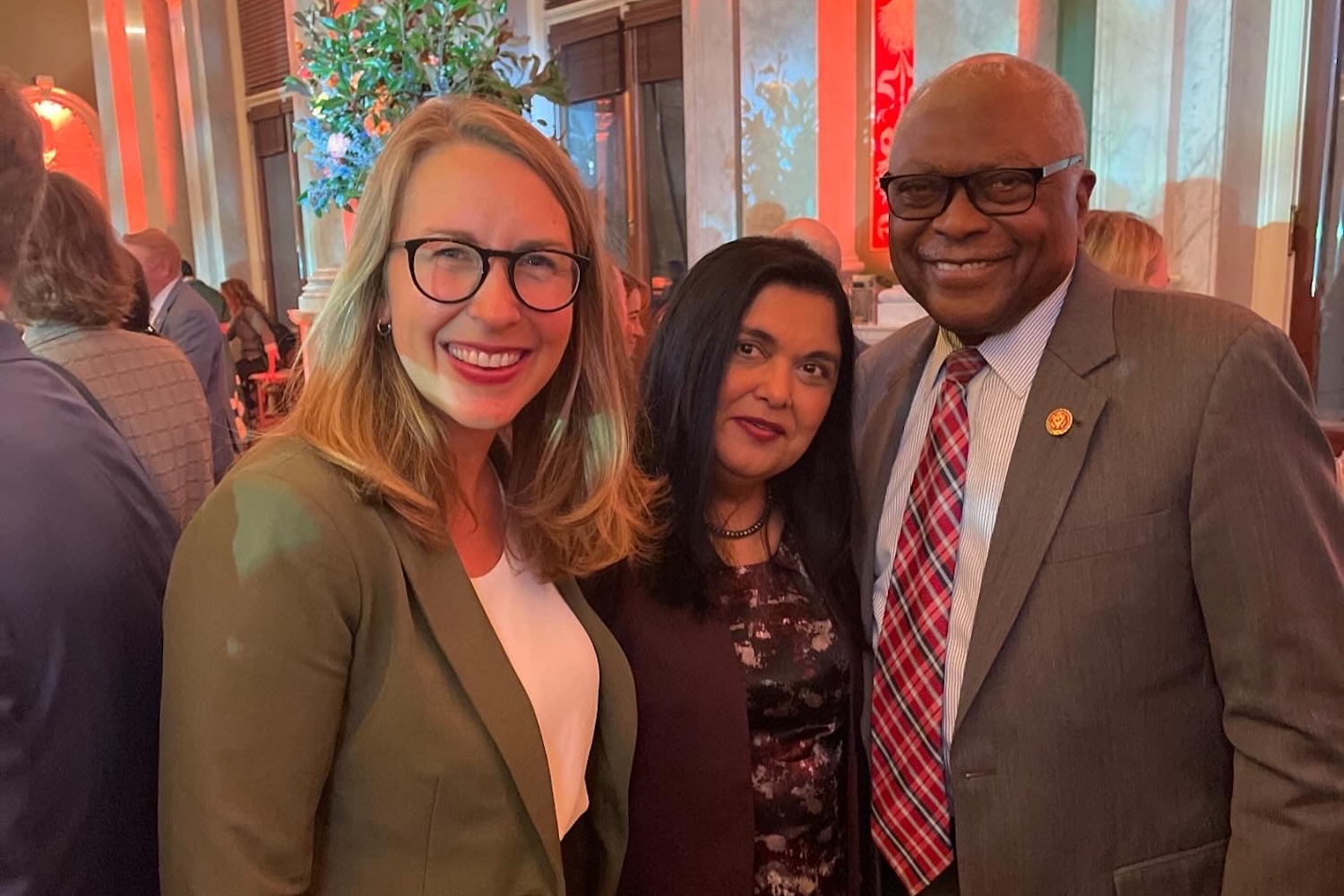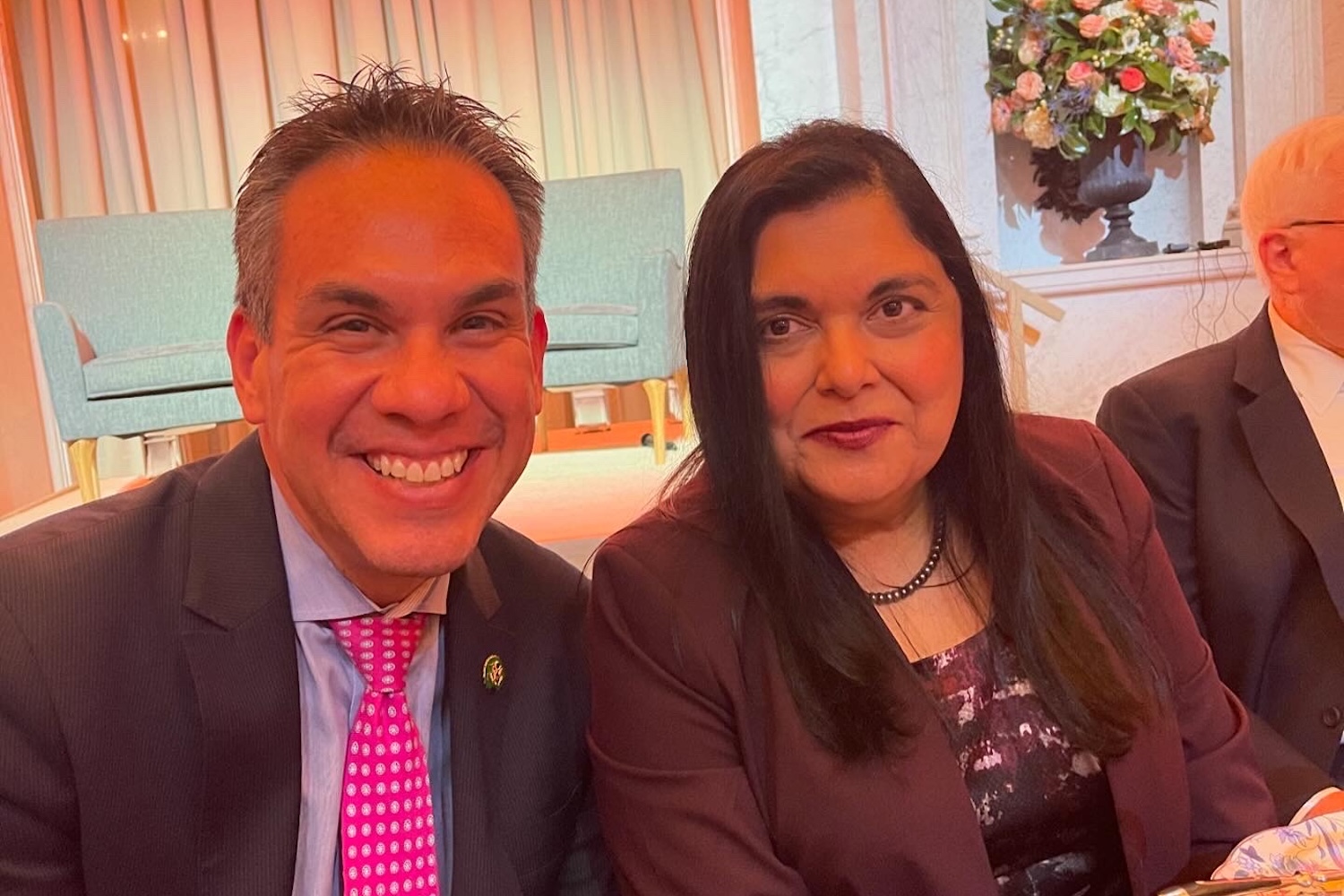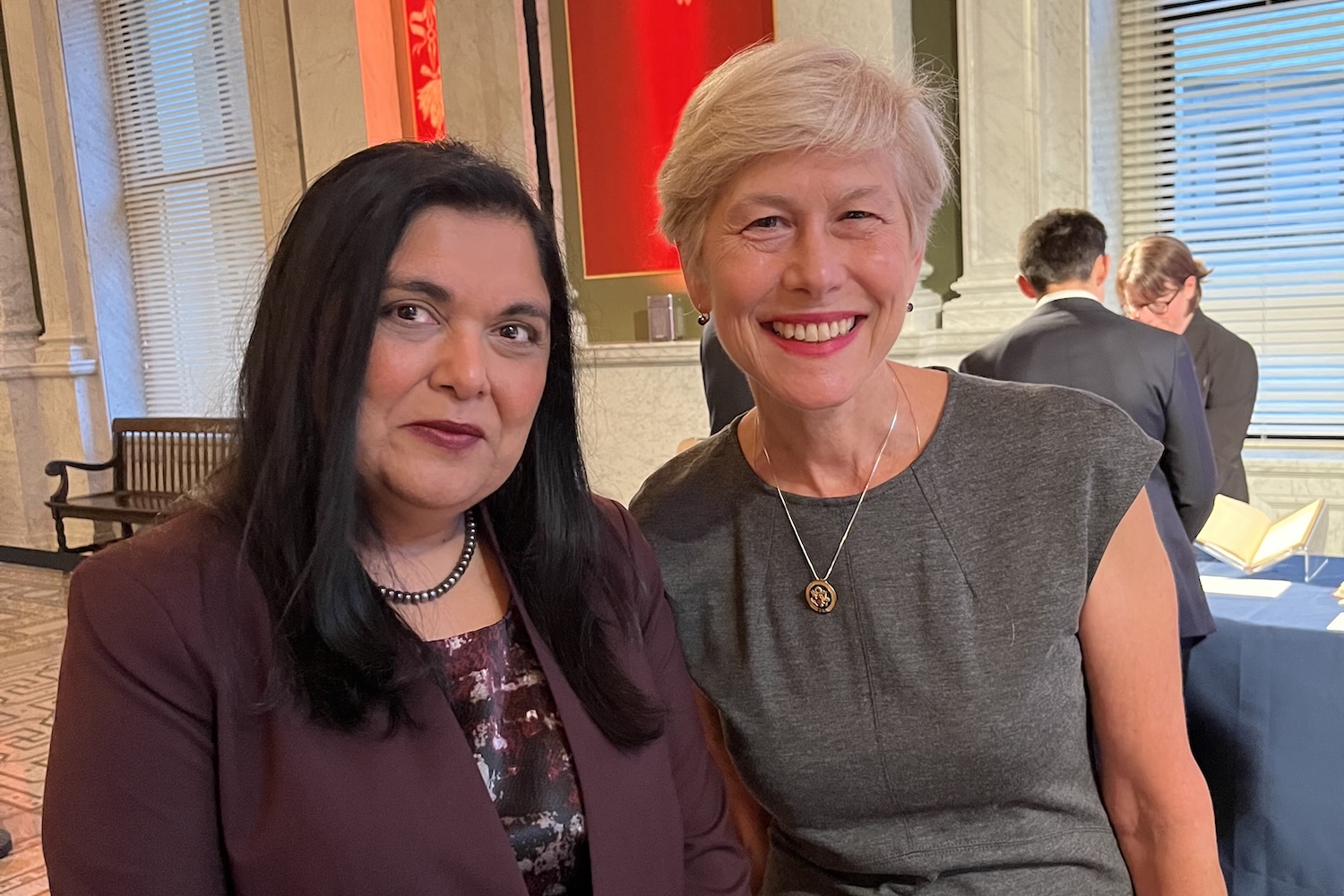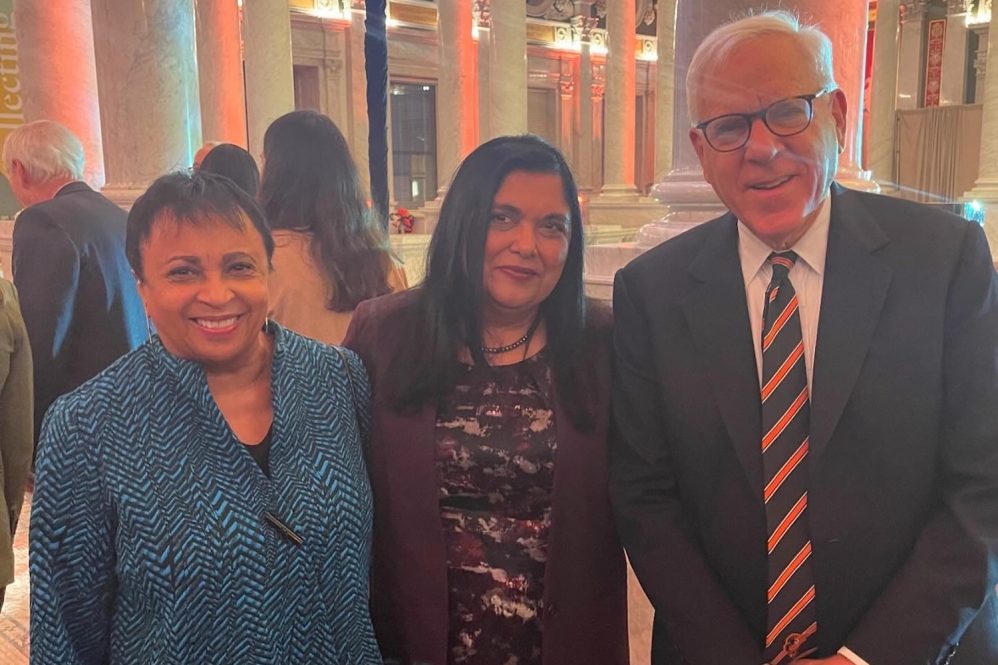Manisha Sinha rarely has opportunities to talk directly to those shaping modern history, but on Sept. 25, she spoke to about 225 U.S. members of Congress about her latest book.
“I don’t get a chance very often to speak to people in positions of power, so I really used my time,” the James L. and Shirley A. Draper Chair in American History says.
The Library of Congress selected Sinha’s book, “The Rise and Fall of the Second American Republic: Reconstruction, 1860-1920″ as part of its Congressional Dialogue series, which invites all members of Congress to a dinner, reception, and discussion with the author at the Thomas Jefferson Building at the Library of Congress.
The goal of the series is to foster constructive dialogue about contemporary modern issues and important moments in American history among Congress members.
Librarian of Congress Carla Hayden opened the evening with welcoming remarks, and businessman and author David Rubenstein then led a discussion with Sinha and a Q&A session with Congress members, and attendees received signed copies of Sinha’s book.

The book re-examines the era following the Civil War and includes the long unwinding of Reconstruction after 1877, when most historians say the period ended. It evaluates how American democracy was reshaped between 1860, when President Abraham Lincoln was elected, and 1920, when women earned the right to vote.
Sinha says the book parallels current controversies surrounding race, immigration, and voting rights. For instance, Sinha drew on her research of the 14th Amendment to join an amicus brief on a Colorado Supreme Court case that ultimately rejected former President Donald Trump’s disqualification from the 2024 presidential ballot because of his incitement of the Jan. 6, 2021 Capitol insurrection. Her then-forthcoming book was also cited in another amicus brief for that case by a group of Yale and Harvard historians.
“Maybe that’s what brought my book to their attention. There are a lot of connections between Reconstruction to the present day,” Sinha says.
Divisive rhetoric that calls people “criminals and rapists” can “incite racist division and even encourage horrific violence against them,” she says, and is like what happened to Black people after the fall of Reconstruction, during the Jim Crow era.

Sinha initially wondered whether hostile responses would surface among some members, but says she was delighted to see lawmakers asking thoughtful questions.
“I didn’t get any kind of pushback, heckling, or hostility,” Sinha says. “I anticipated that, especially when I was talking about the overthrow of Reconstruction and the use of racist demagoguery to rile up racial divisions.”
“I could just say what happened then, in terms of what racist southern demagogues were doing at the turn of the century, and I would leave it [at that],” she says. “This is [also] how I teach my students, who have differing political opinions.”
The event followed the last congressional session where the House and Senate voted to pass a stopgap bill to fund the federal government until Dec. 20, which ultimately avoided a government shutdown. Still, Sinha says there was still a large turnout of both Republican and Democrat lawmakers.

“Many of them were rushing back to their districts because they’re up for re-election and they have a short time period since Congress adjourned,” she says. “I did get to meet some interesting Congressmen and women. There were so many of them that it was difficult to meet everyone.”
Sinha felt honored to share her research with the nation’s leaders and was impressed by the level of detail put into the event, including the historically inspired tablecloths and the display of original material that she had used in her book.
“Members of Congress were always connecting [their questions] directly to present day issues,” she says. “They’re just so many connections [between my book and the current political landscape] that I’m grateful for this moment. I was really thrilled to do it.”



